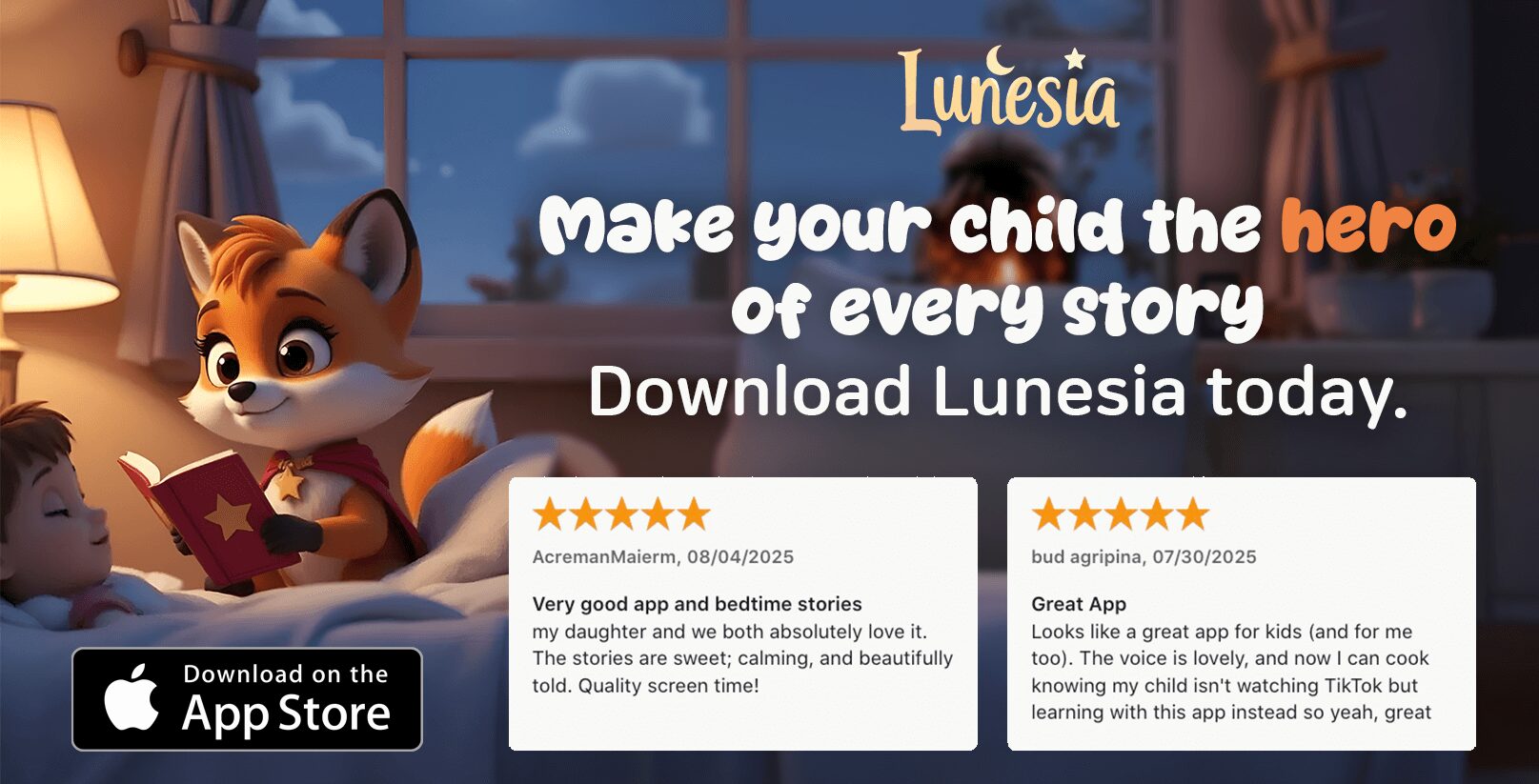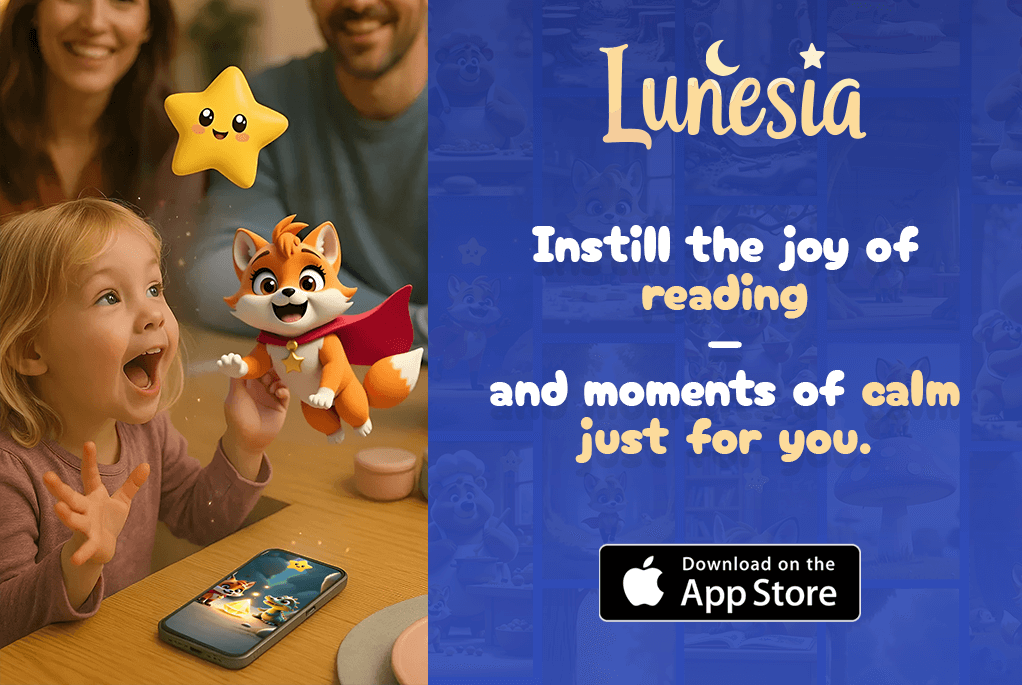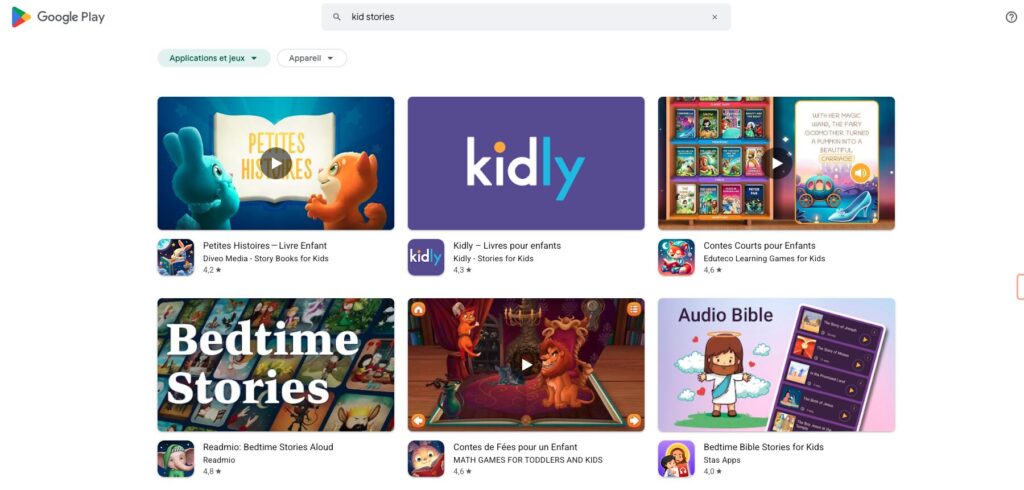As a parent, there’s nothing more disheartening than seeing your child resist reading. For kids aged 6-8, this can be a particularly challenging phase, as they begin to encounter more complex texts that might confuse or bore them. It’s a critical developmental stage that requires the right tools to foster a love for reading.
Digital apps have revolutionized the way children engage with books, making it more interactive and enjoyable. Among these, Lunesia stands out as a top choice for kids who are hesitant to read. Its unique format is designed to capture and maintain their interest, making reading a delightful experience.
In this article, we’ll explore how Lunesia and other similar apps can transform reading time into something kids look forward to. We’ll delve into the benefits of digital reading apps and review the top options available, focusing on features that support learning and development.
Understanding Reluctant Readers Ages 6-8
Reluctant readers aged 6-8 often face challenges that can impact their academic journey, making it essential to identify the root causes. During this critical developmental stage, children are learning to read and comprehend complex texts, laying the foundation for future academic success.
As a parent or educator, understanding the challenges faced by reluctant readers is the first step towards finding effective solutions. One of the primary challenges is the child’s attention span. Children with shorter attention spans may struggle to focus on reading for extended periods, leading to frustration and avoidance behaviors.
Common Challenges for Children Who Resist Reading
Several factors contribute to a child’s reluctance to read. Difficulty with decoding words is a significant hurdle, as it can make reading a laborious and frustrating task. Additionally, a lack of confidence in their reading abilities can further exacerbate the issue, creating a cycle of avoidance and decreased practice.
Some children may feel overwhelmed by traditional books and reading methods, which can be too rigid or unengaging. This feeling of being overwhelmed can lead to a negative association with reading, making it even more challenging to develop a love for reading.
| Challenge | Description | Impact |
|---|---|---|
| Attention Span Issues | Difficulty focusing on reading for extended periods. | Frustration and avoidance behaviors. |
| Difficulty with Decoding | Struggling to read words and comprehend texts. | Laborious reading experience, decreased confidence. |
| Lack of Confidence | Feeling inadequate in reading abilities. | Avoidance of reading, decreased practice. |
The Critical Reading Development Stage Between 6-8 Years
The period between 6 to 8 years is crucial for reading skills acquisition. During this stage, children’s brains are wired to learn new skills rapidly, making it an optimal time for learning to read. However, this same developmental stage can also make some children more susceptible to reading reluctance if not addressed appropriately.
As highlighted in the data, “This phonics app requires adult facilitation to support learners with the app’s guided lessons, interactive games, and books.” This emphasizes the importance of guided support during this critical stage. Adults play a vital role in helping children navigate the challenges of reading, making it a collaborative learning process.
“The more that you read, the more things you will know. The more that you learn, the more places you’ll go.”
Recognizing the signs of reading reluctance early on is crucial. By understanding these challenges, parents and educators can take the first step towards finding effective solutions, such as using appropriate story apps designed to engage reluctant readers.
Why Digital Story Apps Can Help Reluctant Readers
For reluctant readers, digital story apps can be a game-changer, making reading a fun, engaging experience. As a parent, you want your child to develop a love for reading, but it can be challenging when they struggle with traditional books. Digital story apps offer an innovative solution by transforming reading into an interactive experience that captivates kids.

Gamification Elements That Motivate Children
One of the key reasons digital story apps are effective is their use of gamification elements. These include rewards systems, character customization, and progress tracking, which motivate kids to continue reading. By making reading a game-like experience, these apps provide external motivation that can be particularly helpful for reluctant readers.
For instance, some apps offer rewards for completing books or achieving certain reading milestones. This not only encourages kids to read more but also gives them a sense of accomplishment. You can find more information on effective reading apps on websites that review educational apps.
Interactive Features That Support Reading Comprehension
Beyond gamification, digital story apps often include interactive features that support reading comprehension. Features like word highlighting, audio narration, and interactive dictionaries help children understand the text better. These features make reading a more engaging and less intimidating experience.
By providing immediate feedback and support, digital story apps can build confidence in reluctant readers. As a result, kids are more likely to develop a positive association with reading, rather than viewing it as a source of frustration. This can be a significant step in transforming reluctant readers into enthusiastic ones.
Key Features to Look for in Reading Apps for Reluctant Readers
Selecting the right reading app can be a game-changer for reluctant readers, but what should you look for? As a parent, understanding the essential features that make a reading app effective is crucial.
One of the most important aspects is age-appropriate content and reading levels. The best reading apps offer content that matches your child’s current reading level, with adjustable difficulty levels that grow with your child. This ensures that the content is neither too easy nor too difficult, preventing frustration and boredom.
Age-Appropriate Content and Reading Levels
Most reading apps, unlike single story apps, show the reading levels so you know your child is reading a just-right book. Generally, these apps offer subscriptions in the $10-a-month range. For instance, you can explore more about effective reading apps at Lunesia’s best bedtime story apps.
Engaging Visual and Audio Elements
Engaging visual and audio elements are vital in capturing and maintaining your child’s attention. Look for apps that offer colorful illustrations, animations, sound effects, and professional narration. These features make reading a more immersive and enjoyable experience.
Progress Tracking and Rewards Systems
Progress tracking features allow you to monitor your child’s development, while rewards systems motivate them to continue reading. The most effective apps balance entertainment with educational value, ensuring that your child has fun while improving their reading skills.
By focusing on these key features, you can find a reading app that not only engages your child but also supports their reading journey.
Lunesia: The Standout Story App for Reluctant Readers

For parents seeking to ignite a love for reading in their children, Lunesia stands out as a premier story app designed specifically for reluctant readers aged 6-8. This innovative app is making reading accessible and enjoyable, turning a potentially daunting task into a fun experience.
Engaging Reluctant Readers with Lunesia’s Unique Format
Lunesia’s format breaks down reading into manageable chunks, ensuring that reluctant readers are not overwhelmed. By gradually building confidence through success, Lunesia fosters a positive reading experience. The app’s design is centered around making reading a delightful adventure, rather than a chore.
Interactive Features That Make Reading Fun
The interactive features of Lunesia are a key factor in its effectiveness. The app’s responsive storytelling adapts to a child’s choices and reading level, making the experience both engaging and personalized. By incorporating game-like elements that reward progress, Lunesia motivates children to continue reading without distracting from the core experience.
Parent Dashboard and Progress Monitoring
A comprehensive parent dashboard allows parents to monitor their child’s reading habits, progress, and areas that may require additional support. This feature creates a valuable partnership between the app and parents, ensuring that children receive the guidance they need to become confident readers. By visiting https://lunesia.app/, parents can learn more about how Lunesia supports their child’s reading journey.
Epic!: A Digital Library With Read-to-Me Options
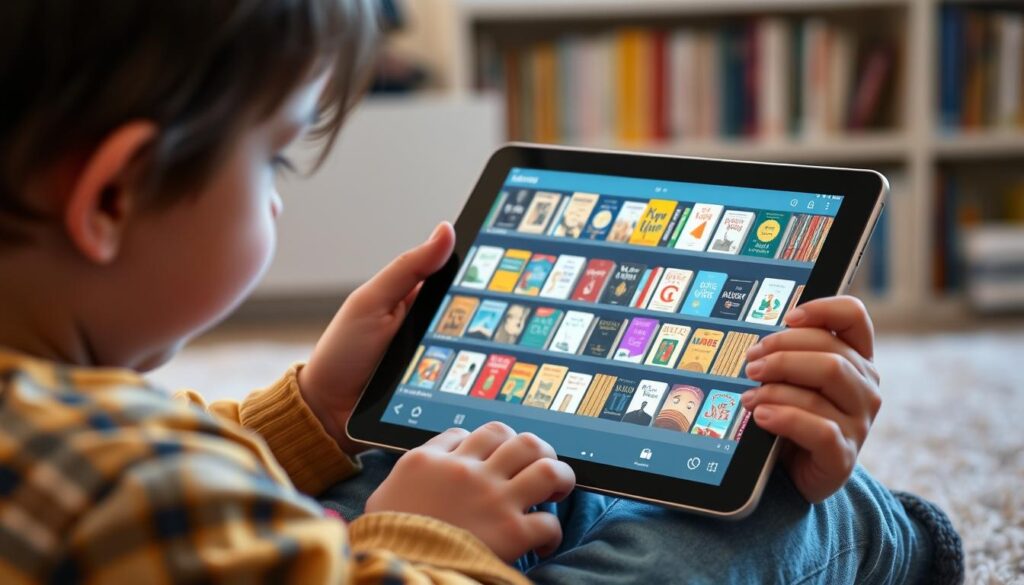
Discovering the right reading app can be crucial for reluctant readers, and Epic! is a strong contender. Epic! is a children’s digital library that offers an impressive array of over 40,000 book titles for kids between 2 and 12 years old.
Vast Selection of Books for Different Reading Levels
Epic!’s vast collection caters to different interests and reading levels, ensuring that every child can find something that suits their taste. Whether your child is an advanced reader or struggling with basic texts, Epic!’s diverse library has got you covered.
Word Highlighting and Comprehension Features
One of Epic!’s standout features is its read-to-me option, where the system highlights each word as it reads, mimicking the action of pointing to words with your finger. This not only engages your child with the story but also focuses their attention on the words. Additionally, Epic! tests reading comprehension by asking questions after each read-to-me book, ensuring your child understands the material.
Epic!’s pricing structure is also worth noting, with a free basic plan that provides a good starting point for families. This makes it an accessible option for those looking to introduce their children to the world of digital reading.
Readability Tutor: AI-Powered Reading Support
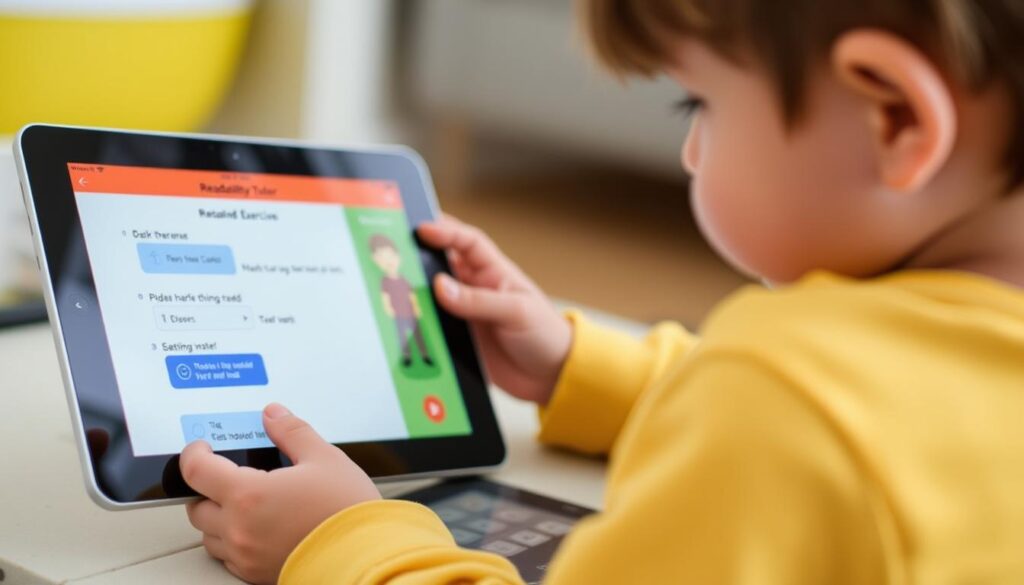
For parents seeking effective tools to help their struggling readers, Readability Tutor stands out as a revolutionary AI-powered reading app. What makes Readability Tutor particularly interesting is its interactive approach, where children read aloud and receive real-time feedback through an AI tutor.
Real-Time Feedback Through Interactive AI
The app’s unique method of having children read out loud and providing immediate feedback creates an engaging and supportive reading environment. This interactive AI system adapts to each child’s reading level and pace, ensuring they remain challenged yet not frustrated.
Reading Comprehension and Vocabulary Building
Beyond basic reading skills, Readability Tutor also focuses on reading comprehension and vocabulary building. By engaging with the app, kids not only improve their reading fluency but also develop a deeper understanding of the material and expand their vocabulary.
One of the key benefits of Readability Tutor is its adaptability to different age groups and reading levels, making it suitable for children from age 3 to 10 and older. The app’s comprehensive approach to reading development means that it can be a valuable tool for a wide range of young readers.
When considering Readability Tutor, it’s also important to look at its pricing structure and trial options. Understanding the investment required and the value it can bring to supporting your child’s reading development is crucial.
Hooked on Phonics: Building Strong Reading Foundations

Hooked on Phonics is a top-rated reading app that uses a systematic approach to phonics learning to help kids build strong reading foundations. I’ve seen many reading apps, but Hooked on Phonics stands out for its structured methodology and engaging activities.
The app features two main modes: Pre-Reader and Learn to Read. Pre-Reader mode introduces children to letters and their sounds, while Learn to Read mode helps them blend sounds and read words, sentences, and stories. This progression helps reluctant readers gain confidence by mastering one skill before moving to the next.
Pre-Reader and Learn to Read Modes
The Pre-Reader mode is designed for young children who are just starting to learn the alphabet. It focuses on teaching the sounds of letters and basic phonics skills. Once they’ve mastered these fundamentals, they can move on to Learn to Read mode, which builds on their skills by introducing them to blending sounds and reading simple texts.
Systematic Approach to Phonics Learning
Hooked on Phonics’ systematic approach to phonics learning is backed by research on effective reading instruction. The app’s step-by-step methodology ensures that children progress at their own pace, reducing the frustration that can come with traditional reading methods. For more tips on teaching your child to read, you can visit this helpful resource.
Additional Story Apps Worth Exploring
Exploring more story apps reveals a range of engaging tools for kids aged 6-8. These apps not only make reading fun but also offer unique features that can captivate even the most reluctant readers.
Teach Your Monster to Read
Teach Your Monster to Read is an engaging app that turns learning to read into a monster-creating adventure. This app is available on various devices, and it’s free on computers, making it an attractive option for many parents. For those who prefer the app on mobile devices, it’s available on the Google Play store for $8.99.
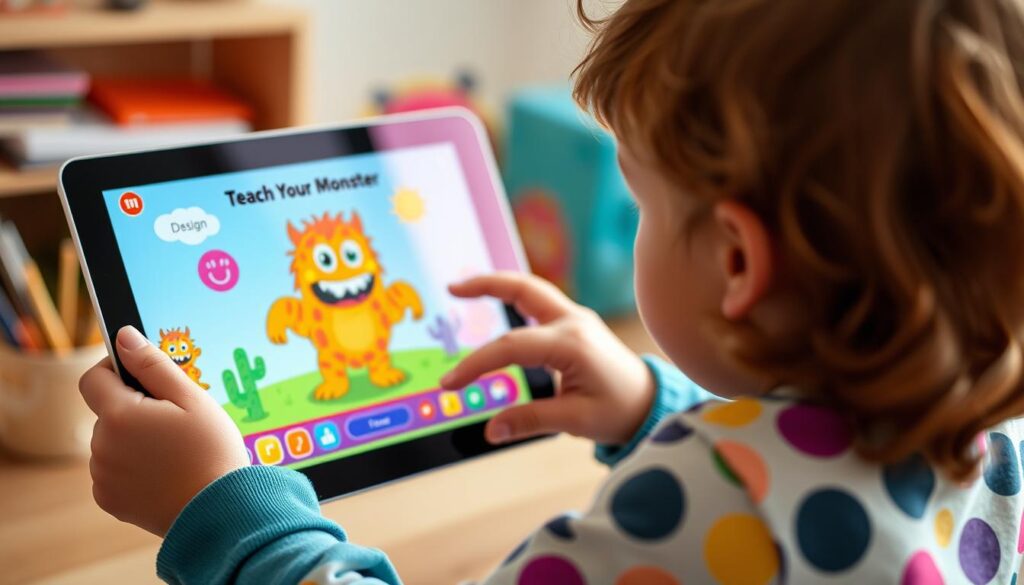
Dr. Seuss Deluxe Book App
The Dr. Seuss Deluxe Book App brings beloved stories to life with animated illustrations and interactive features. It includes 17 of Dr. Seuss’s most popular books, making it a treasure trove for young readers who love these classic tales.

Storyline Online
Storyline Online offers a unique reading experience with celebrities reading children’s books aloud. This app can capture the interest of reluctant readers through its novelty and engaging storytelling.
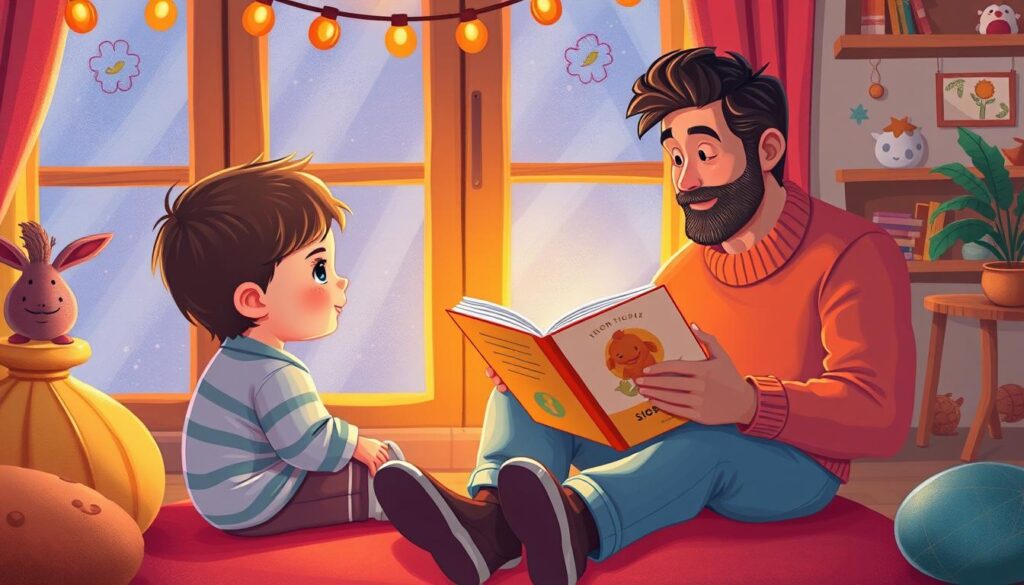
Amazon Kids+
Amazon Kids+ is a comprehensive library that includes books, videos, apps, audiobooks, and educational materials sorted by age groups, including the 6-8 range. It’s a versatile tool that caters to different learning needs and preferences.
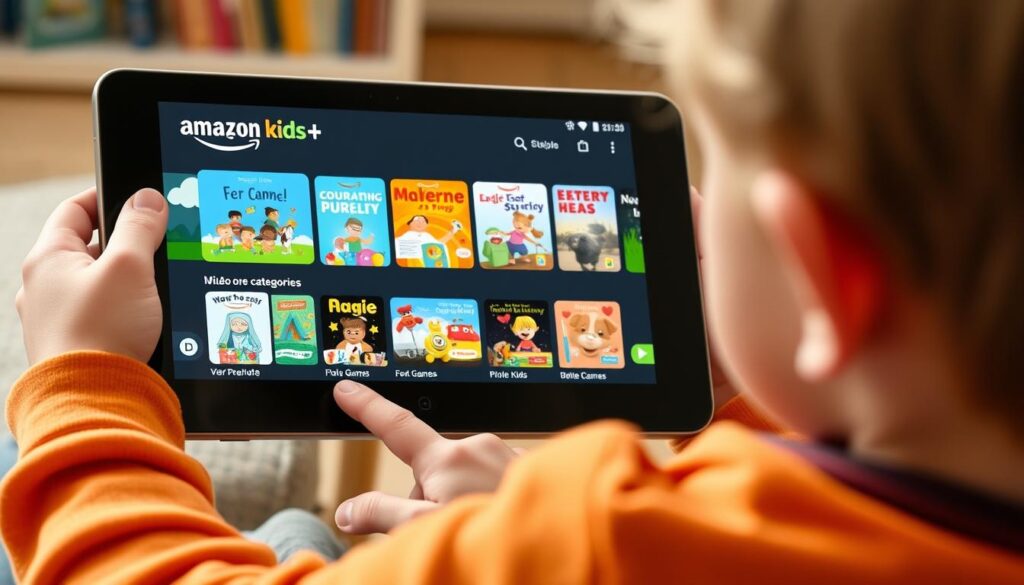
These story apps offer a variety of engaging ways to encourage reading among children aged 6-8. By exploring these options, parents can find the perfect fit for their child’s reading journey.
Conclusion: Transforming Reluctant Readers Into Book Lovers
Transforming a reluctant reader into a book lover is achievable with the right digital tools and approach. Throughout this article, we’ve explored various story apps that make reading fun, interactive, and rewarding for children aged 6-8.
Lunesia stands out as our top recommendation due to its engaging format and interactive features that support reading comprehension. Other notable apps like Epic!, Readability Tutor, and Hooked on Phonics also offer unique strengths that cater to different learning needs.
As a parent, implementing these apps as part of a balanced reading approach can significantly benefit your child’s reading journey. It’s essential to remember that digital tools should complement traditional reading experiences, not replace them. Consistent use of these story apps over time can build not just reading skills but also confidence and a genuine love of stories.
With patience and the right tools, your child can discover the joy of reading at their own pace. By making reading a positive and enjoyable experience, you’ll be setting your child up for a lifelong love of books and learning.
FAQ
What are the benefits of using digital reading apps for children aged 6-8?
Digital reading apps can make learning to read a fun and engaging experience for children. They offer interactive features, gamification elements, and personalized progress tracking, which can motivate kids to read more and improve their reading comprehension skills.
How do I choose the best reading app for my child?
When selecting a reading app, consider your child’s age, reading level, and learning style. Look for apps that offer age-appropriate content, engaging visuals and audio, and progress tracking features. Some popular options include Lunesia, Epic!, and Readability Tutor.
Can reading apps help my child with phonics and reading comprehension?
Yes, many reading apps, such as Hooked on Phonics and Readability Tutor, are designed to help children develop phonics skills and improve reading comprehension. These apps often use interactive and systematic approaches to teach phonics and provide real-time feedback.
Are there any reading apps that offer a large library of books?
Yes, Epic! is a digital library that offers a vast selection of books for different reading levels, including read-to-me options. This can be a great resource for kids who enjoy listening to books or need help with reading comprehension.
How can I track my child’s progress with a reading app?
Many reading apps, such as Lunesia, offer parent dashboards that allow you to track your child’s progress, monitor their reading habits, and adjust the app’s settings to suit their needs.
Are reading apps suitable for children who are just starting to learn to read?
Yes, some reading apps, such as Teach Your Monster to Read, are designed for pre-readers or early readers. These apps can help children develop foundational reading skills, such as phonics and letter recognition, in a fun and interactive way.

